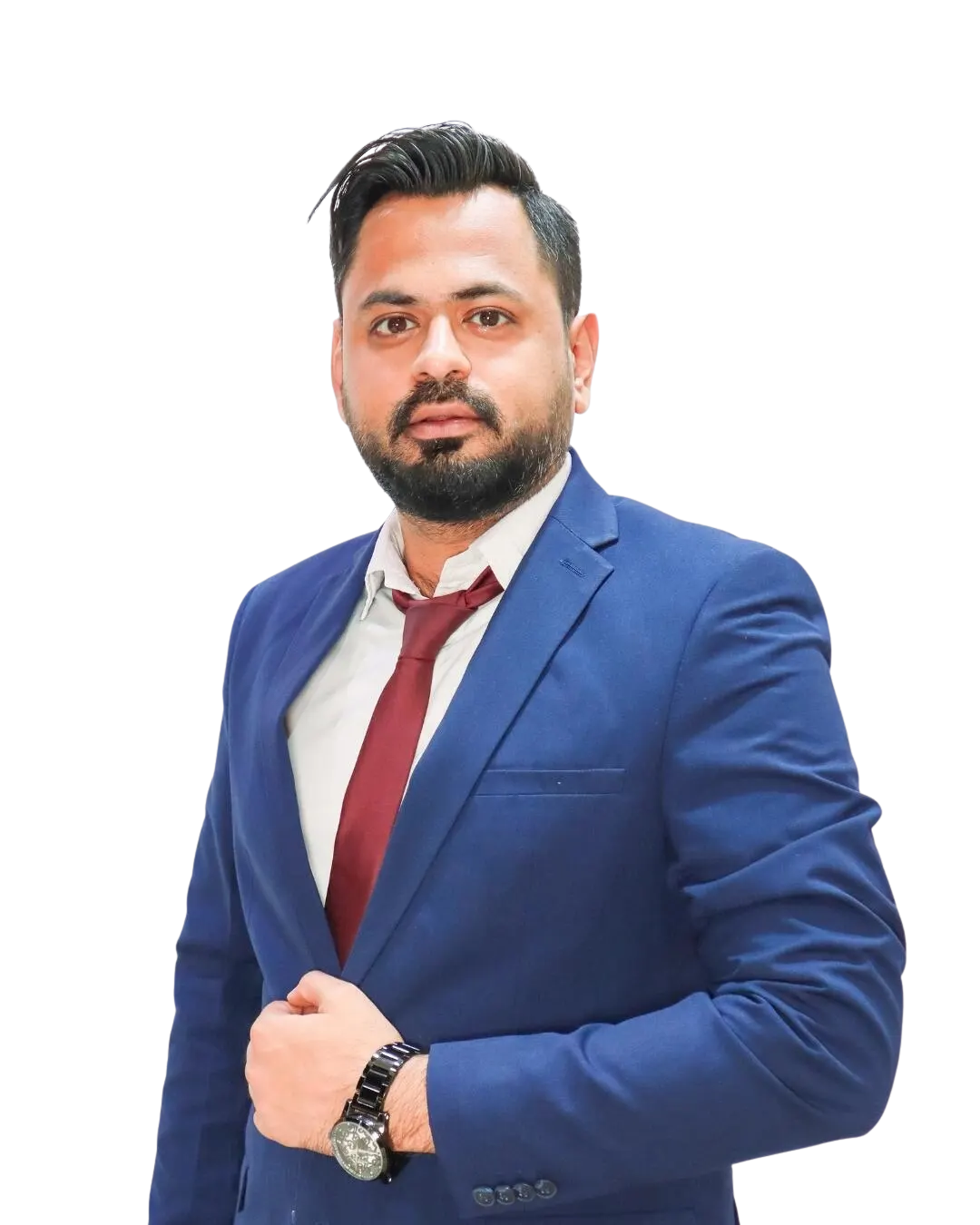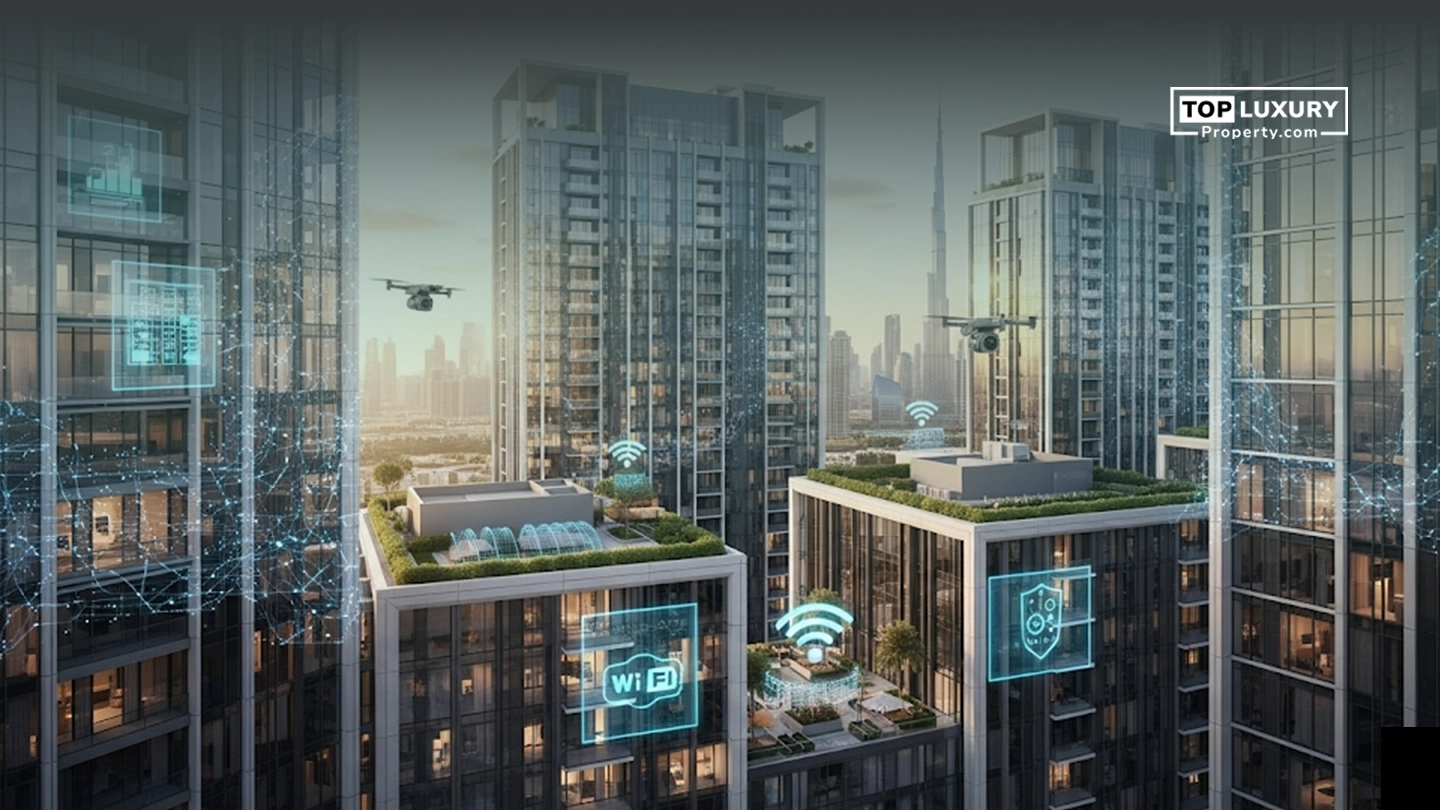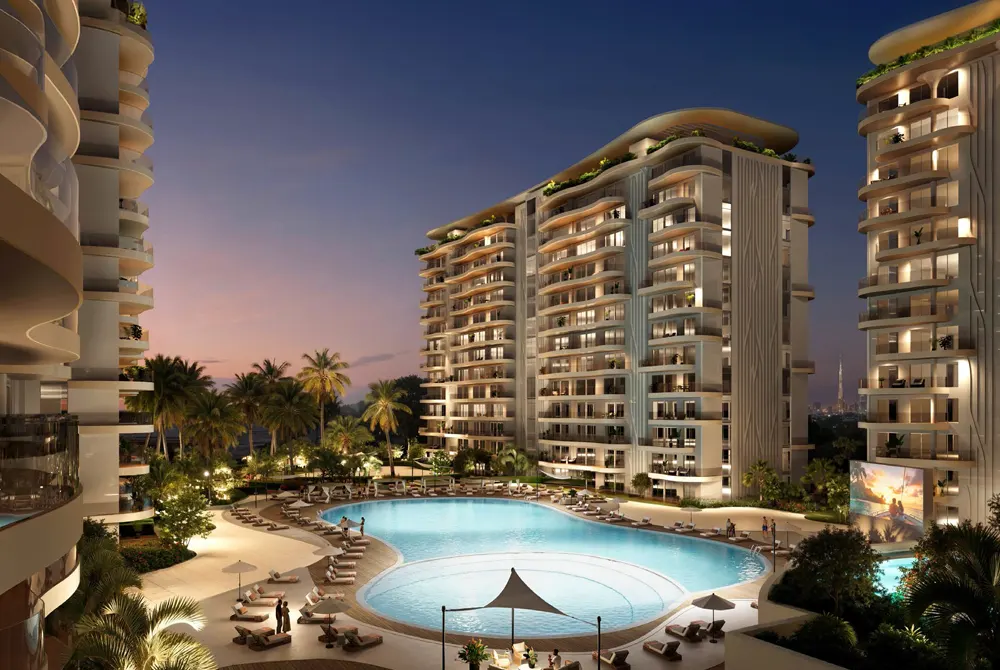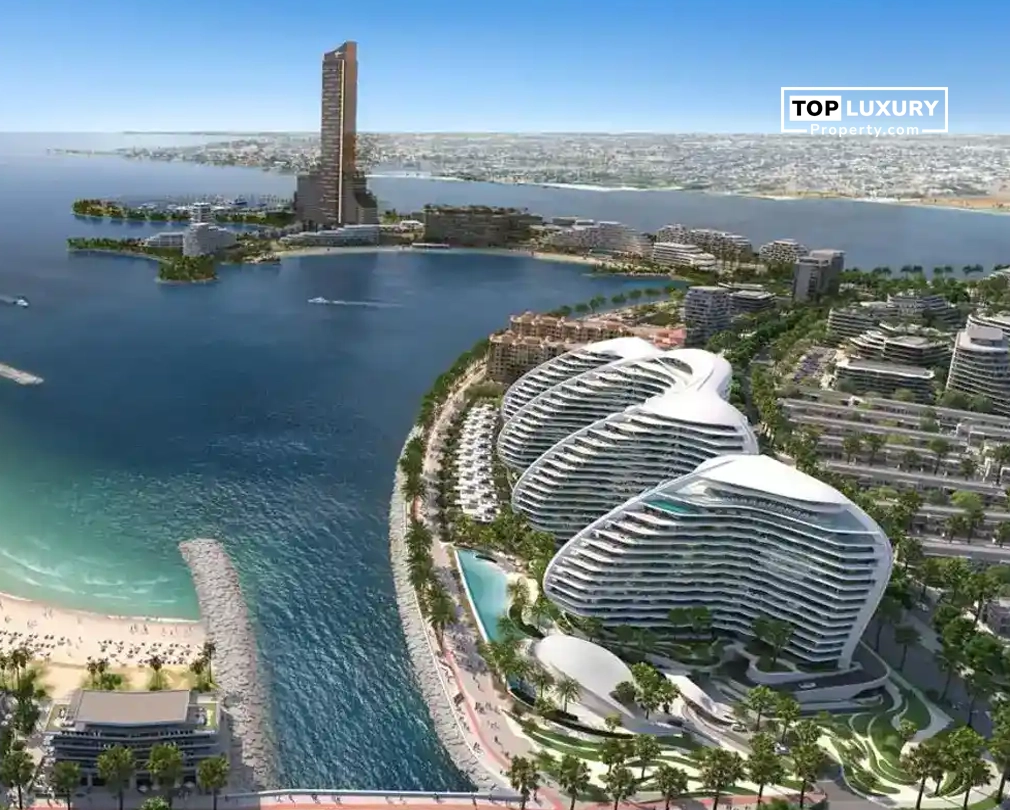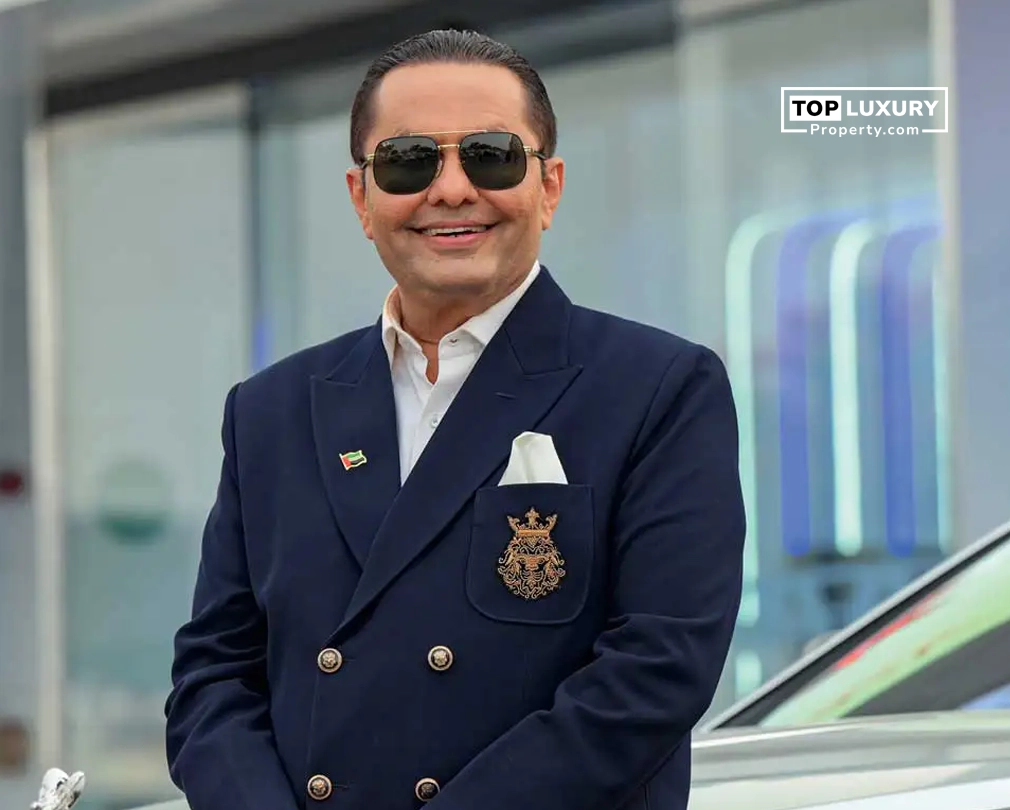 Feb 03, 2026
Feb 03, 2026Introduction to IoT and Smart Buildings in Dubai
Dubai’s real estate sector is well known globally for its innovation, futuristic architecture, and luxury lifestyle offerings, but in recent years the transition to technology based, sustainable and connected living has been in the limelight. Central to this change is The Internet of Things (IoT) , a network of devices that are connected, share, collect and transmit real time data to optimize building performance.
In IoT and smart buildings in Dubai’s property market, technology is no longer just an add on. Technology is becoming a central piece of a developer’s property strategy, particularly in off plan projects for sale in Dubai. This is driven by:
Government strategies like the Smart Dubai Strategy, which aims to make Dubai the smartest city in the world.
An increasing number of buyers domestic and international demand the availability of responsive, energy efficient, and safe homes.
Developers need to adopt differentiating products to compete in the market.
IoT allows buildings to operate as self regulating ecosystems and respond to the needs of occupants in real time. This is particularly relevant as smart homes for sale in Dubai are appealing to global investors looking for investments that offer
Enhancing Energy Efficiency through IoT Integration
Energy consumption is a critical issue in the UAE, especially because cooling installations can comprise as much as 70% or more of total electricity consumption in some properties. Most of the limitations in developing energy efficient properties can be overcome by utilizing IoT enabled systems, which use data driven solutions to provide end users with the control they require to manage energy usage. Some of the most effective IoT applications for enhancing energy efficiency in a building located somewhere, such as Dubai, are:
Smart Thermostats and HVAC control systems: Smart thermostats and HVAC control systems can learn occupancy patterns and, independently, adjust the building’s cooling and heating systems. For example, devices made by companies such as Nest and Honeywell hone in on the efficiency of HVAC systems in buildings. For Dubai, Nest found, based on studies conducted by Emirates Green Building Council, that by using Nest devices in its properties can save as much as 30% in annual cooling costs compared to properties without such devices.
IoT based lighting systems: Lighting and HVAC solutions using lighting devices and LED lighting together with motion sensors ensure lights are only on when required. Also, the smart and street and façade lighting solutions implemented in development, such as Bluewaters Island provide additional ambiance to developments, all whilst using energy efficient technologies.
Water management through IoT sensor technologies: Water systems like leak detection and smart irrigation that avoid waste are key to a limited resource in a desert, like the UAE. Neighbourhood communities such as Arabian Ranches III include smart irrigation for community landscaping through IoT sensor solutions.
Energy Dashboards for residents: Access to real time consumption information from IoT systems through mobile applications further assists building residents and the operator understand energy consumption and contribute to sensible and responsible energy and environmental use behaviour.
Impact of IoT on Off Plan Projects in Dubai
Developers of off-plan projects available for sale in Dubai promote energy efficiency as one of their main selling points, which attracts equity investors who need to meet the growing demand for eco-friendly investments and allows developers to receive green building certifications from local entities such as LEED and Estidama.
IoT Driven Automation and Building Management Systems
Building Management Systems (BMS) are central to smart building operations. IoT takes BMS to the next level by integrating every aspect of a building’s function into a single, intelligent control system. How IoT Enhanced BMS Works in Dubai
- Security Automation: Facial recognition at building entrances, biometric locks, and AI enabled CCTV for real time threat detection.
- HVAC Integration: Automated adjustments based on occupancy sensors, outdoor climate, and energy demand.
- Fire and Safety Systems: IoT smoke detectors that communicate directly with the central fire station and trigger automated suppression.
- Access and Visitor Management: Digital passes via mobile apps, as seen in luxury developments like Emaar Beachfront.
Table: IoT Features in Dubai’s Smart Buildings and Their Benefits
| IoT Feature | Function | Benefit to Residents & Investors |
|---|---|---|
| Smart Lighting | Motion based lighting control | Energy savings, improved ambiance |
| Intelligent HVAC | Automated cooling/heating | Lower utility costs, consistent comfort |
| Smart Security Systems | AI cameras, biometric access | Enhanced safety and property protection |
| Predictive Maintenance Alerts | Equipment health monitoring | Reduces repair costs, prevents breakdowns |
| Automated Water Management | Leak detection, smart irrigation | Conserves water, prevents damage |
| Energy Consumption Dashboards | Real time tracking of energy use | Increases awareness, supports sustainability |
| Voice Controlled Home Systems | Alexa/Google Home integration | Convenience, modern lifestyle appeal |
| Smart Parking Solutions | IoT based parking space management | Saves time, improves resident experience |
Challenges and Opportunities in IoT Adoption
There are substantial advantages to be gained; however, there are challenges faced by developers and property owners with IoT system integration.
Challenges:
High Initial Financial Commitment: Installing an IoT infrastructure could increase construction budgets by 5 to 10%.
Cybersecurity Risks: IoT devices may become vectors for hackers; thus requiring a sophisticated approach to security.
Technology Integration in Aging Buildings: Retrofitting legacy systems could be financially prohibitive and technologically difficult.
User Adaptation: Residents relying on complex systems may need education and training to use them effectively.
Opportunities:
Government Support: As Dubai develops smart cities initiatives, the government’s pro activity will help influence adoption, through policy support.
Rising Demand: The growing volume of smart homes to develop in Dubai demonstrates recognized consumer interest.
Long Term Savings: Reduced utility costs and decreased maintenance costs increase the return on investment potential.
Selling Feature: IoT features in projects will provide a distinction for off plan sales properties in Dubai as compared to competing developments.
Future Trends of IoT in Dubai’s Real Estate Sector
Dubai is expected to remain a trailblazer for innovation in smart building technologies. Anticipated IoT in Real Estate Developments:
Predictive Management with Artificial Intelligence: Buildings that preemptively adjust energy, security and maintenance requirements before a need arises.
Integrated IoT with Blockchain: Increasing security and transparency in building operations data.
5G Connectivity for IoT Devices: Faster speed and more reliable automation.
Digital Twin Technology: Real time virtual depictions of physical buildings for inspection, etc.
Sustainable IoT Solutions: Expanding green features to assist in Dubai’s Net Zero 2050 agenda.
Impact of IoT on Off Plan Projects in Dubai: Future off-plan projects for sale in Dubai will likely showcase the IoT readiness of the new development as a primary selling point next to location and amenities. Developments such as Dubai Creek Harbour are already embracing the advanced integration of smart technologies into their master plans.
Conclusion
The Impact of IoT in Dubai Real Estate is transformative and will not be reversed or unfixed. It has moved from being perceived as a luxury to one of core expectations amongst buyers and tenants. From energy efficiency to improved security to increased property value, the IoT has certainly moved the dial for how the buildings in Dubai are being created, operated and used. For Developers leveraging IoT and smart buildings in Dubai real estate is not just about being a pioneer, it is about enabling themselves to continue to be viable options that a market will continue to seek out given a preference towards innovation, sustainability and technology. As Dubai progresses toward its goal of being the smartest city in the world, IoT will continue to lead the way toward the next future of living and working in a city that is constantly evolving.


